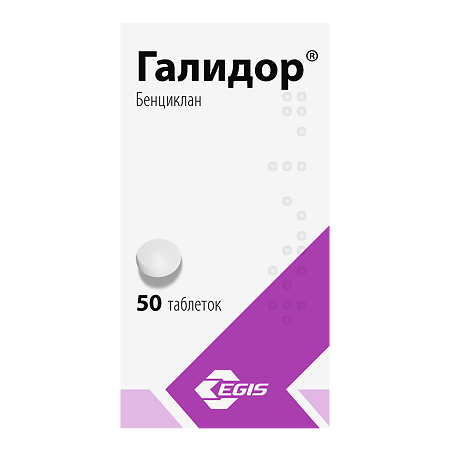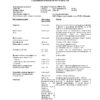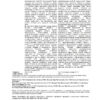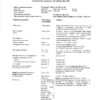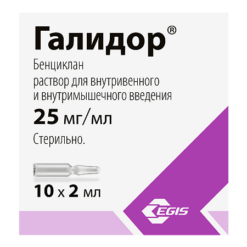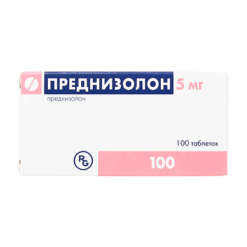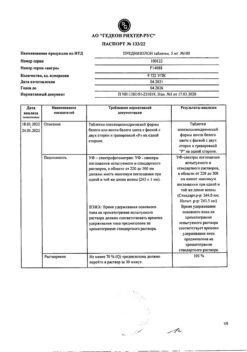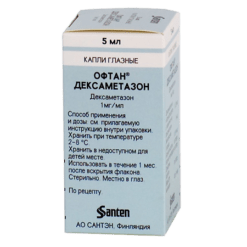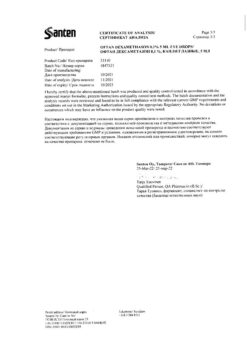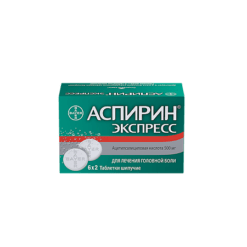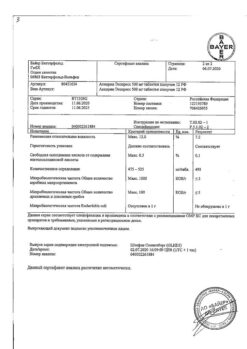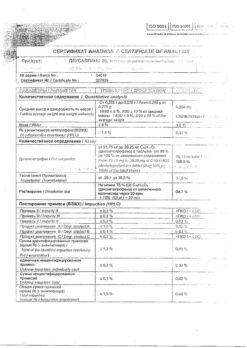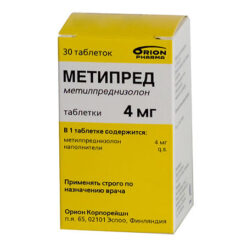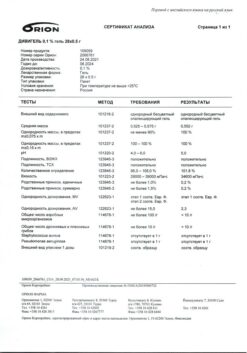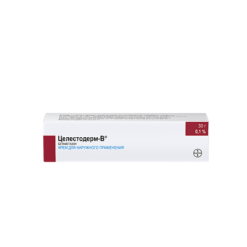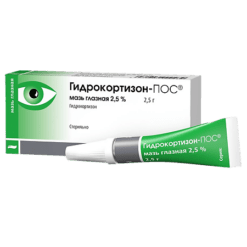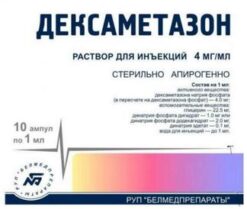No products in the cart.
Galidor, tablets 100 mg 50 pcs
€19.23 €16.66
Description
Pharmgroup:
Spasmodilator.
Pharmic action:
Galidor is a myotropic antispasmodic with pronounced vasodilatory action. The vasodilator effect of benziclane is mainly due to its ability to block calcium channels, antiserotonin action, and to a lesser extent to blockade of sympathetic ganglia.
Benciclane can cause dose-dependent inhibition of Na+/K+-dependent ATPase and platelet and erythrocyte aggregation as well as increased erythrocyte elasticity. These effects are observed mainly in peripheral vessels, coronary arteries and cerebral vessels.
In addition, benziclane has antispasmodic effects on visceral muscles (gastrointestinal, urinary tract, respiratory organs).
The drug causes a slight increase in heart rate. Its mild tranquilizing effect is also known.
Indications
Indications
Vascular diseases:
– peripheral vascular disease – Raynaud’s disease, other diseases with acrocyanosis and vasospasm, as well as chronic obliterating arterial disease;
– diseases of the brain vessels: in the treatment of acute and chronic cerebral ischemia.
For the elimination of spasm of the internal organs:
– gastrointestinal diseases – gastroenteritis of various etiologies (especially infectious), infectious and inflammatory colitis, functional diseases of the large intestine, tenesmus, postoperative flatulence, cholecystitis, gallstone disease, condition after cholecystectomy, motility disorders with dyskinesia of the sphincter of Oddi, peptic ulcer (in the combination therapy);
– urological syndromes: bladder spasms and tenesms, concomitant therapy of urolithiasis (in combination with analgesics for renal colic);
Preparation for instrumental methods of examination in urology (for solution for I/V and I/M injection).
Active ingredient
Active ingredient
Composition
Composition
1 tablet:
bencyclan fumarate 100 mg
Excipients:
potato starch,
polyvinyl acetate,
magnesium stearate,
carbomer 934 R,
br>
sodium carboxymethyl starch (type A),
silica colloidal anhydrous dioxide,
talk.
How to take, the dosage
How to take, the dosage
Vascular diseases:
Ingestion Galidor® is prescribed 100 mg 3 times daily for 2-3 months. The maximum daily dose for oral administration is 400 mg. The interval between courses is 2-3 months.
The drug can also be used as an IV infusion at a daily dose of 200 mg divided into 2 doses. Before infusion, 100 mg (4 ml) of the drug is diluted in 100-200 ml of isotonic sodium chloride solution and administered by IV drip for 1 hour 2 times per day.
To relieve spasm of internal organs:
Ingestion Galidor® is prescribed in dose of 100-200 mg once daily, but not more than 400 mg/day. For maintenance therapy, 100 mg 3 times/day is prescribed for 3-4 weeks, then 100 mg 2 times/day. The therapy duration is determined individually depending on disappearance of symptoms and, as a rule, does not exceed 1-2 months.
In acute cases Galidor® is administered by injection slowly in dose of 100-200 mg (4-8 ml) or intravenously in dose of 50 mg (2 ml). Before intravenous administration the necessary amount of solution is diluted with sodium chloride isotonic solution to 10-20 ml. The course of treatment is 2-3 weeks with subsequent transfer of the patient, if necessary, to oral administration of the drug Galidor®.
Interaction
Interaction
In concomitant use Galidor® increases the CNS depressant effect of anesthetics and sedatives.
Special Instructions
Special Instructions
In concomitant administration of Galidor with drugs causing hypokalemia, cardiac glycosides, with drugs depressing myocardial function, the daily dose of Galidor should not exceed 150-200 mg.
In case of parenteral use, the injection sites should be changed because the drug may cause vascular endothelial damage and thrombophlebitis.
Parenteral administration of the drug should be avoided in patients with severe cardiovascular or respiratory failure, those prone to collapse, and those with prostatic hypertrophy and urinary retention (the degree of retention increases with relaxation of the bladder muscles).
If Galidor is used for a long time, systematic (at least once every 2 months) laboratory tests of blood rheological properties are recommended.
Impact on driving and operating machinery
In the beginning of the course of treatment, patients should be particularly careful when driving vehicles and other potentially dangerous activities.
Contraindications
Contraindications
– severe respiratory failure;
– severe renal failure;
– severe hepatic failure;
– decompensated heart failure;
– acute myocardial infarction;
– AV-blockade;
– paroxysmal supraventricular or acute ventricular tachycardia;
– epilepsy and other forms of spasmophilia;
– recent hemorrhagic stroke;
– brain injury (within the last 12 months);
– pregnancy;
– lactation (breastfeeding);
– childhood and adolescence under 18 years of age (insufficient experience of use);
– hypersensitivity to the components of the drug Galidor.
Side effects
Side effects
Digestive system disorders: dry mouth, abdominal pain, feeling of fullness, nausea, vomiting, decreased appetite, diarrhea, increased liver serum transaminase activity.
CNS disorders: anxiety, dizziness, headache, gait disturbance, tremor, sleep disturbances, insomnia, memory disorders; transient mental confusion, epileptiform seizures, hallucinations in elderly patients are rare; in single cases – symptoms of focal CNS lesion.
Cardiovascular system disorders: sometimes atrial and ventricular tachyarrhythmia (especially when combined with other proarrhythmogenic drugs).
Others: general malaise, weight gain, leukopenia, allergic reactions; rarely – thrombophlebitis when administered intravenously.
Overdose
Overdose
Symptoms: increased HR, decreased BP, collapse, impaired renal function, urinary incontinence, drowsiness, restlessness, in severe cases – epileptiform seizures. Significant overdose may cause tonic and clonic seizures.
Allergic reactions.
Treatment: conducting symptomatic therapy. When taking a large number of pills, gastric lavage should be performed. Benzodiazepines are recommended for the treatment of seizures. A specific antidote is not known. There are no data on the possible excretion of benzicline by dialysis.
Pregnancy use
Pregnancy use
No adequate and strictly controlled clinical studies on the use of the drug Galidor® during pregnancy and lactation have been conducted.
Therefore, administration of the drug to patients in the first trimester of pregnancy is not recommended.
If it is necessary to use the drug during lactation, the question of stopping breastfeeding during treatment should be considered.
The data of preclinical studies showed no embryotoxic or teratogenic effects.
Additional information
| Shelf life | 5 years |
|---|---|
| Conditions of storage | At 15-25 °C |
| Manufacturer | EGIS, Hungary |
| Medication form | pills |
| Brand | EGIS |
Other forms…
Related products
Buy Galidor, tablets 100 mg 50 pcs with delivery to USA, UK, Europe and over 120 other countries.

